There is a real risk that U.S.-China technology competition will end up hurting Taiwan, writes Ryan Hass. Whether and how Taiwan’s economic equities are protected amidst the intensifying U.S.-China technologic competition will depend on the work of policymakers in Washington and Taipei. This piece originally appeared in the Taipei Times.
Many Taiwan policymakers hold the view that U.S.-China tensions create favorable conditions for closer U.S.-Taiwan relations. As the thinking goes, the less beholden Washington is to maintaining stable relations with Beijing, the more it will be willing to show support for its democratic friends in Taiwan. In the coming months, this proposition may be tested.
There is a high probability that U.S.-China relations will continue to deteriorate in the months to come. The U.S.-China phase one trade deal slowed the rate of decline in the relationship, but it did not reverse the downward trajectory. The reality is that tariffs are the side-show. The real action now is in the technology sphere. The more that U.S.-China technology competition intensifies, the greater the risk of collateral damage to Taiwan, even though that is not the intent of any American policymakers.
Amidst its broad concerns about China’s technological advancement, the Trump administration is particularly focused on Chinese telecommunications company Huawei’s growing penetration of markets across the globe. Already embedded in telecommunications networks across Asia, Africa, Latin America, and the Middle East, Huawei recently gained approval to provide 5G services in the United Kingdom.
London’s approval of Huawei’s involvement in its 5G network was a setback for the Trump administration. Washington had hoped to limit Huawei’s reach, particularly in countries where the United States maintains close security partnerships. Now that the United Kingdom has set a precedent, there is concern that other major countries will follow suit, thus allowing Huawei to gain greater control of next generation mobile networks around the world.
To be clear, Washington’s focus on Huawei did not begin with the Trump administration and it will not end when President Trump leaves office. There is strong bipartisan awareness in the United States of the risks presented by Huawei’s growing global reach for information security, for the well-functioning of devices that will be connected to the Internet of Things, and for potential vulnerabilities in a crisis if America or its allies become reliant on Huawei’s telecommunications equipment.
With its efforts to halt Huawei’s spread into new markets floundering, the Trump administration is likely to double down on seeking to slow Huawei’s technological progress. This is where Taiwan’s equities come into play.
Taiwan is a critical provider of high-end semiconductors that Huawei and other Chinese companies need and that Chinese manufacturers cannot produce themselves. On the flip side, China is an important market for Taiwan’s semiconductor companies. For example, 20 percent of Taiwan Semiconductor Manufacturing Company’s (TSMC) sales go to the China market. After Apple, Huawei is TSMC’s biggest customer.
TSMC is one of Taiwan’s largest businesses and the world’s leading semiconductor foundry. As the Carnegie Endowment’s Evan Feigenbaum has described in a recent study, TSMC relies on massive scale to spread out fixed costs, push down price per unit, and pump resources into next generation research and development. If TSMC loses scale, e.g., by losing a market that accounts for 20 percent of its global sales, it could lose its edge over its competitors.
The Financial Times reported last November that the Trump administration has asked Taiwan authorities to compel TSMC to do just that. Per the article, Washington wants Taipei to restrict sales of semiconductors to Huawei and to institute stricter controls on technology exports to China. Washington also reportedly is considering tightening the U.S. content threshold for export controls from 25 to 10 percent, meaning that chips manufactured in Taiwan with 10 percent or greater of American content would require a license for export to China. This could constrain chip sales in the short run, and over the longer term compel Taiwan foundries to engineer American content out of chips bound for China.
China famously spends more each year importing semiconductors than oil. Beijing relies on imports of high-end chips, many of which originate in Taiwan. At the same time, the United States wants to slow down the rate of China’s technological progress, including but not limited to Huawei. So, if it has not done so already, Washington may soon increase pressure on Taipei to support its strategic objectives vis-à-vis China, including by tightening restrictions on sales of high-end chips to China.
Given its equities at stake in policy deliberations in Washington over whether and how to thwart China’s technological progress, Taipei will need to ensure that its voice is heard. If Taiwan is unable to shield its semiconductor industry from increasingly intrusive U.S. export controls on sales to China, then it will need to press Washington for offsetting actions to protect its economic competitiveness. One such possibility would be to pursue a U.S.-Taiwan trade agreement that includes chapters covering trade in goods and services, as well as e-commerce, investment rules, and possibly other areas. Trade negotiators could begin by working from existing chapters in recently concluded trade agreements, including the U.S.-Mexico-Canada Agreement and the Trans-Pacific Partnership.
There is a real risk that U.S.-China technology competition will end up hurting Taiwan. Whether and how Taiwan’s economic equities are protected amidst the intensifying U.S.-China technologic competition will depend on the work of policymakers in Washington and Taipei. There’s no time to waste.
The Brookings Institution is committed to quality, independence, and impact.
We are supported by a diverse array of funders. In line with our values and policies, each Brookings publication represents the sole views of its author(s).


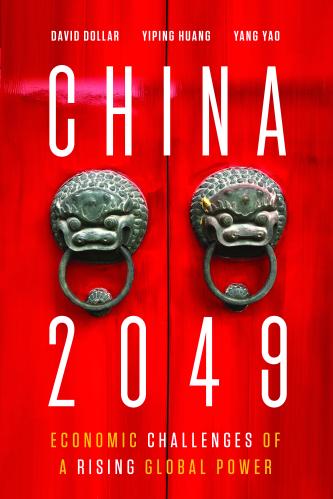
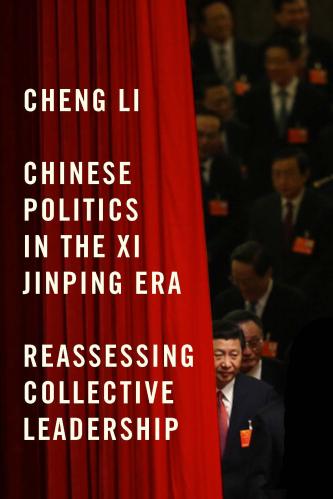
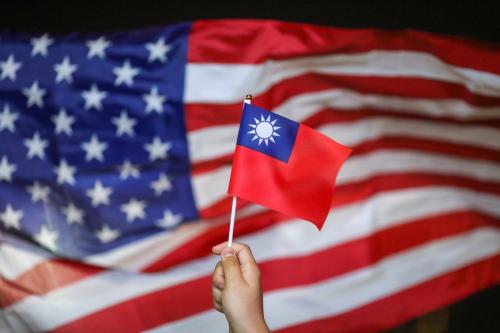
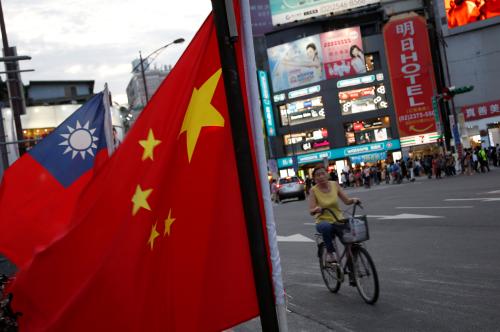
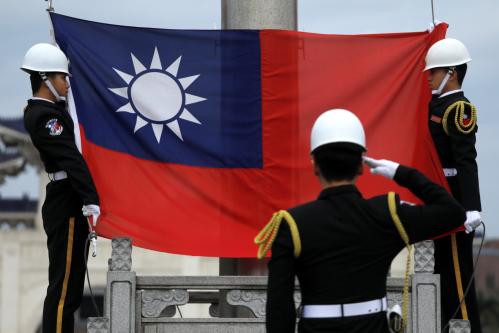


Commentary
This US-China downturn may be difficult for Taiwan
February 24, 2020